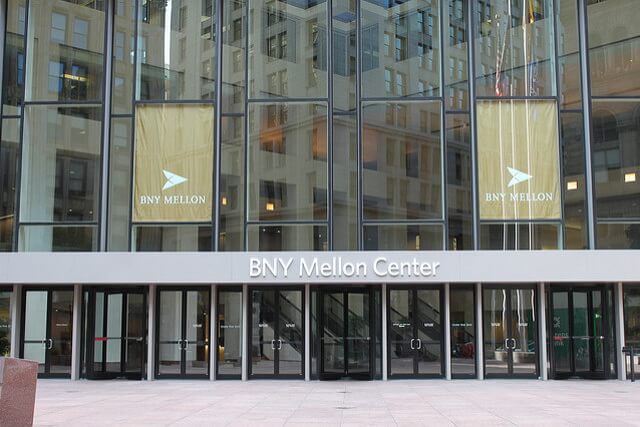The company not only described the potential use cases of the blockchain technology for banks, but also identified the main issues impeding its wider adoption in the sector.
FinTech Network has issued a whitepaper developed together with Rabobank and BNY Mellon highlighting four blockchain use cases in the banking sector. According to the paper, Know Your Customer (KYC) procedures, fraud reduction, trading platforms and payments are the potential applications of the distributed ledger technology for banks.
Reduction of Fraud
Chris Mager, Head of Global Innovation at BNY Mellon Treasury Services, says that the growth of cyber-attacks and fraud is one of the main problems existing in the banking industry today. Most banks are using systems that are based on a centralized database, which makes them more vulnerable to fraud and hacking attacks.
The use of the distributed ledger technology makes banking systems less prone to fraud or data breach. Besides, it will allow organizations to minimize administrative burden and save their time and money.
“The blockchain ledger can provide a historical record of all documents shared and compliance activities undertaken for each banking customer. Malicious attempts to view or change the data become part of the data itself, making thirdparty hacks immediately obvious,” the paper reads.
Know Your Customer (KYC)
In order to prevent money laundering, regulators are closely monitoring banks’ activities, including their customer bases and transaction histories. Banks, in turn, want to meet regulatory requirements to avoid penalties for failing to follow KYC requirements.
By integrating the blockchain technology, banks can make compliance procedures more efficient, reduce operational costs in compliance departments and build closer relationship with regulators.
With the use of blockchain, said Chris Huls, Blockchain Specialist at Rabobank, banks can store client’s data on a distributed ledger that can be accessed by other banks and organizations, what eliminates the need to ask each customer to begin the KYC process all over again.
According to a report by Goldman Sachs, the banking industry can reach a 10% headcount reduction by integrating the distributed ledger technology into KYC procedures, which would result in $160 million in annual cost-savings.
Trading Platforms
The whitepaper further describes how blockchain can transform the way trading platforms exchange financial assets.
The blockchain technology can reduce administrative costs and the risk of fraud, as well as make trading platforms more transparent and secure. Besdies, it will allow banks to transfer funds without the risk of double spending and the need for third parties.
“The traceability and the permanent historic record that would exist on blockchain backing up every asset or item of value that was traded would provide assurance and authenticity all the way through the supply chain,” the paper reads.
Blockchain, which uses tokenisation technology, protects all data regarding financial transactions that took place on a trading platform by providing an access to data only to the parties of the transaction.
Payments
Among the other potential blockchain use cases identified by FinTech Network is the payments sector. According to Chris Huls, the blockchain technology can be used as a new payment method instead of using SWIFT and other payment systems.
By transferring funds via blockchain, banks will be able to significantly cut their expenditures and enhance the speed and security of payments. In addition to quicker money transfers, the distributed ledger enables banks to operate 24 hours per day to meet higher customer expectations.
Challenges for Adoption
The banking sector is still facing numerous problems that slowing down wider usage of the blockchain technology. According to the whitepaper, privacy concerns, scalability issues, and regulatory uncertainty are the main hurdles to the adoption. Furthermore, many are questioning how to integrate the technology into the existing banking systems and with each other.


